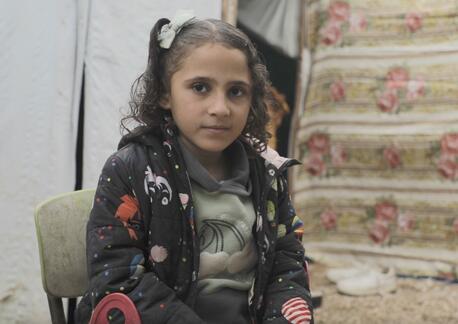
This Ramadan, Children in Yemen Are Struggling to Survive
More than 70 percent of Yemen's population, including 12.9 million children, need humanitarian aid. UNICEF is working to save lives.
The holy month of Ramadan will be particularly difficult this year for families in Yemen, home of one of the world's worst humanitarian crises.
Eight years of conflict, economic meltdown and the COVID-19 pandemic have pushed the country to the brink. Basic services have collapsed, leaving more than 23.4 million people, including 12.9 million children, in need of humanitarian assistance.
An estimated 2.2 million children under 5 in Yemen are acutely malnourished
An estimated 2.2 million children in Yemen are acutely malnourished, including nearly 540,000 children under 5 who are suffering from severe wasting, which can be fatal if left untreated. To protect Yemen's most vulnerable children, UNICEF health workers are on the ground, screening children for malnutrition and referring those in need to health centers, where they can receive the treatment they need to survive.
Case manager Ali Al-Raymi, below, visits impoverished families in Sana'a, Yemen, helping malnourished children like 9-month-old Nour, who weighed only 11 pounds when he first met her in 2022.

"When Nour was born, she was weak and wasted, and her health kept worsening from day to day because of our poor living conditions," said her mother, Souad. Al-Raymi referred Nour to the Maeen Medical Complex for emergency treatment.

At the health center, Nour was screened regularly, and slowly nursed back to health with therapeutic food and nutritional supplements. Soon, she began to take her first faltering steps.
"I feel happy that my baby regained her health and started moving, toddling and playing," said Souad. "She used to feel tired all the time because of her poor health. It's an indescribable feeling as you watch your child recover from an illness that ravaged its body."

There is a painful silence in health centers where children too weak to make a sound are being screened and treated for severe acute malnutrition. Above, Hana’a, a health worker, holds 8-month old Jouri at the UNICEF-supported health facility of AlHussainya in Hudaydah, Yemen. Jouri was diagnosed with severe wasting and referred for treatment.
Severely malnourished children are treated with Ready-to-Use Therapeutic Food (RUTF), a shelf-stable, nutrient-rich peanut paste packaged in individual servings. Below, a child diagnosed with severe wasting is fed RUTF at Al-khatabiah health facility in Tur Al-Bahah, Lahj governorate, Yemen. UNICEF is the global leader in RUTF procurement, purchasing and distributing almost 80 percent of the world's supply.

UNICEF is on the ground, working to keep Yemen's children safe and healthy: You can help
Yemen's youngest children are not responsible for the violent conflict unfolding around them, but they are paying the highest price. UNICEF has been on the ground since the crisis began, taking every measure possible to protect the health and rights and safety of millions of Yemeni children. But UNICEF can't do it alone. There is an urgent need for individuals, organizations and governments to come together and take action to help give children in Yemen and those struggling to survive around the world a safe and happy childhood.
This Ramadan, as thoughts turn to those less fortunate, partner with UNICEF by donating your Sadaqah to bring much-needed relief to children in Yemen and around the world. Please donate.
HOW TO HELP
There are many ways to make a difference
War, famine, poverty, natural disasters — threats to the world's children keep coming. But UNICEF won't stop working to keep children healthy and safe.
UNICEF works in over 190 countries and territories — more places than any other children's organization. UNICEF has the world's largest humanitarian warehouse and, when disaster strikes, can get supplies almost anywhere within 72 hours. Constantly innovating, always advocating for a better world for children, UNICEF works to ensure that every child can grow up healthy, educated, protected and respected.
Would you like to help give all children the opportunity to reach their full potential? There are many ways to get involved.





